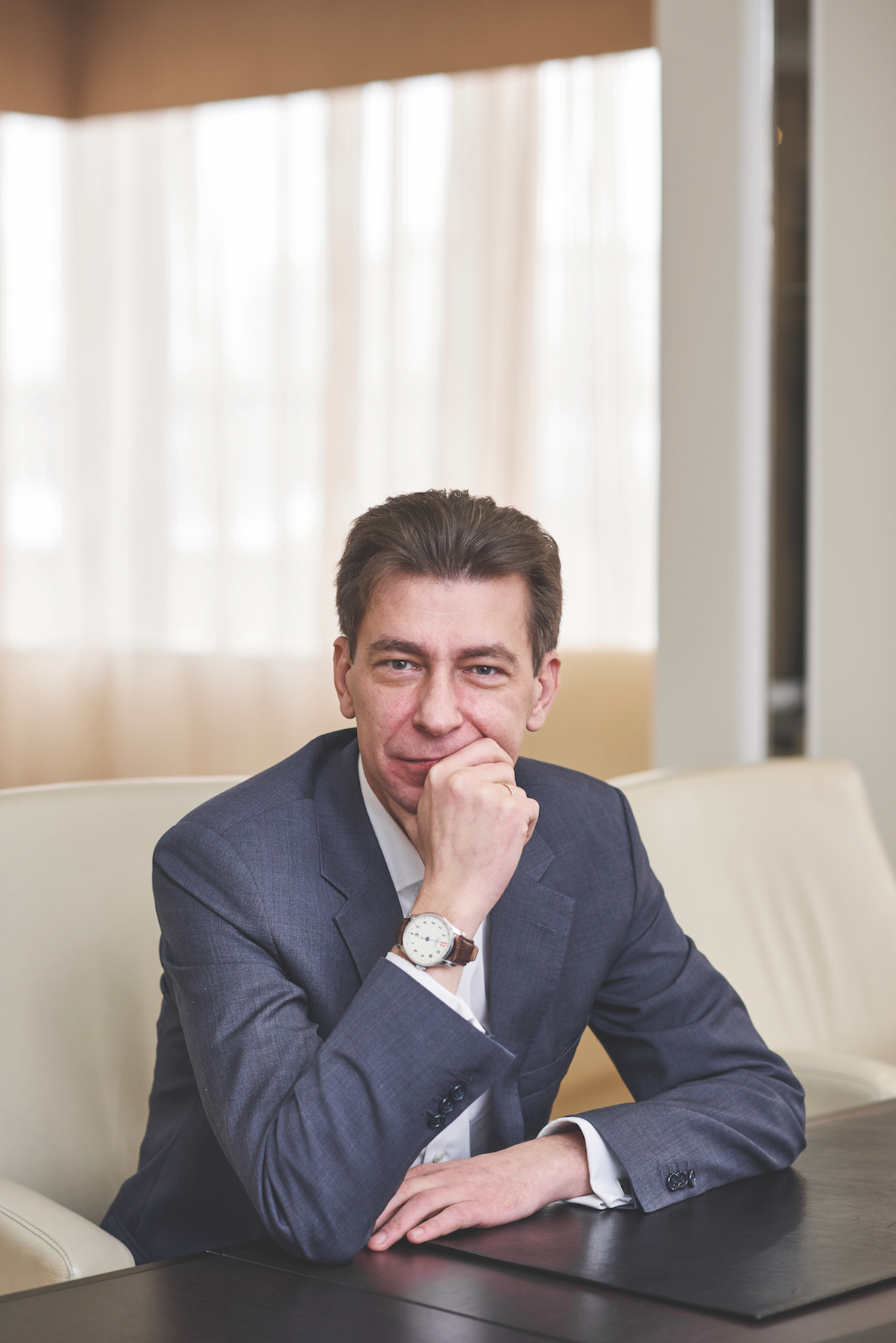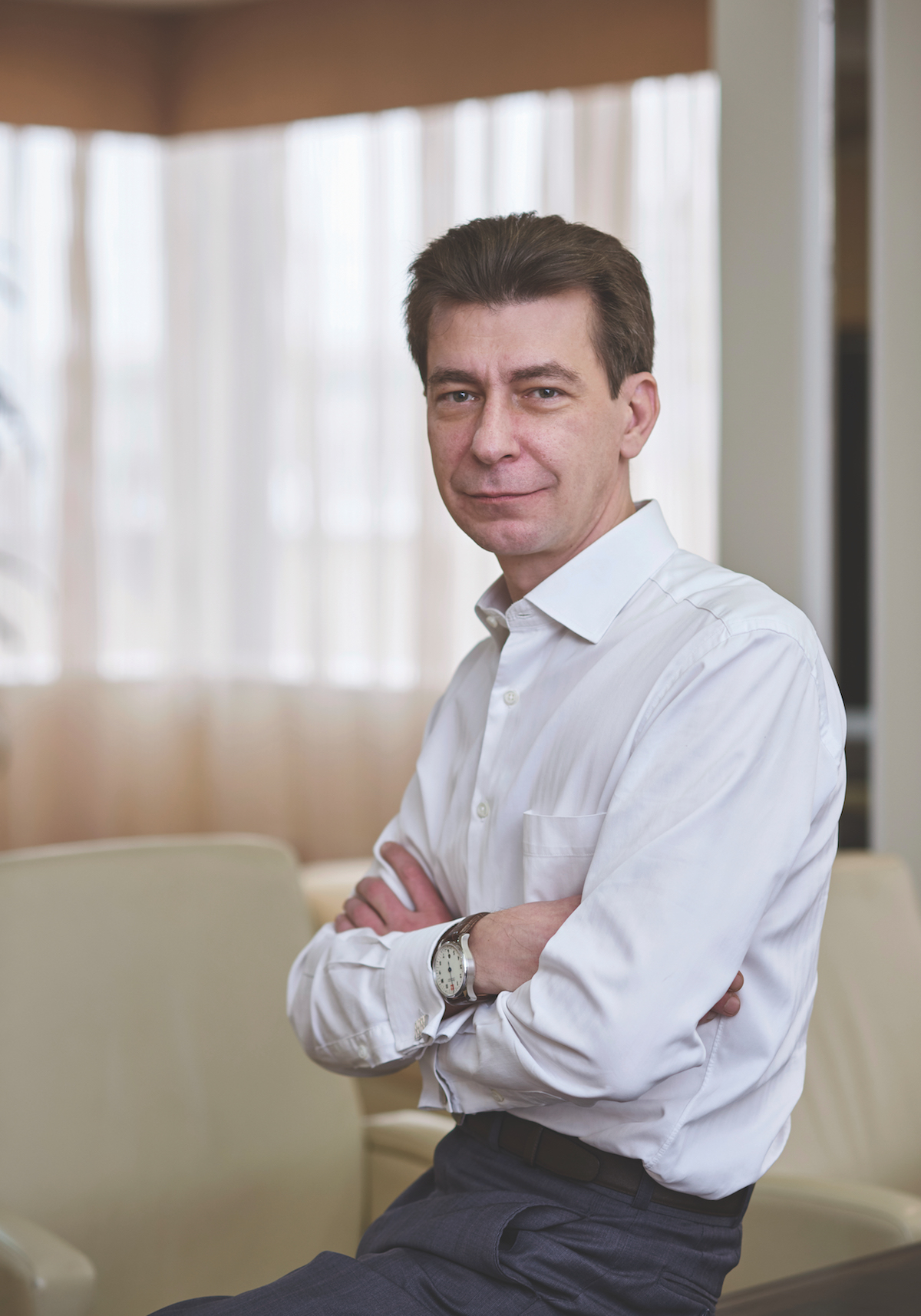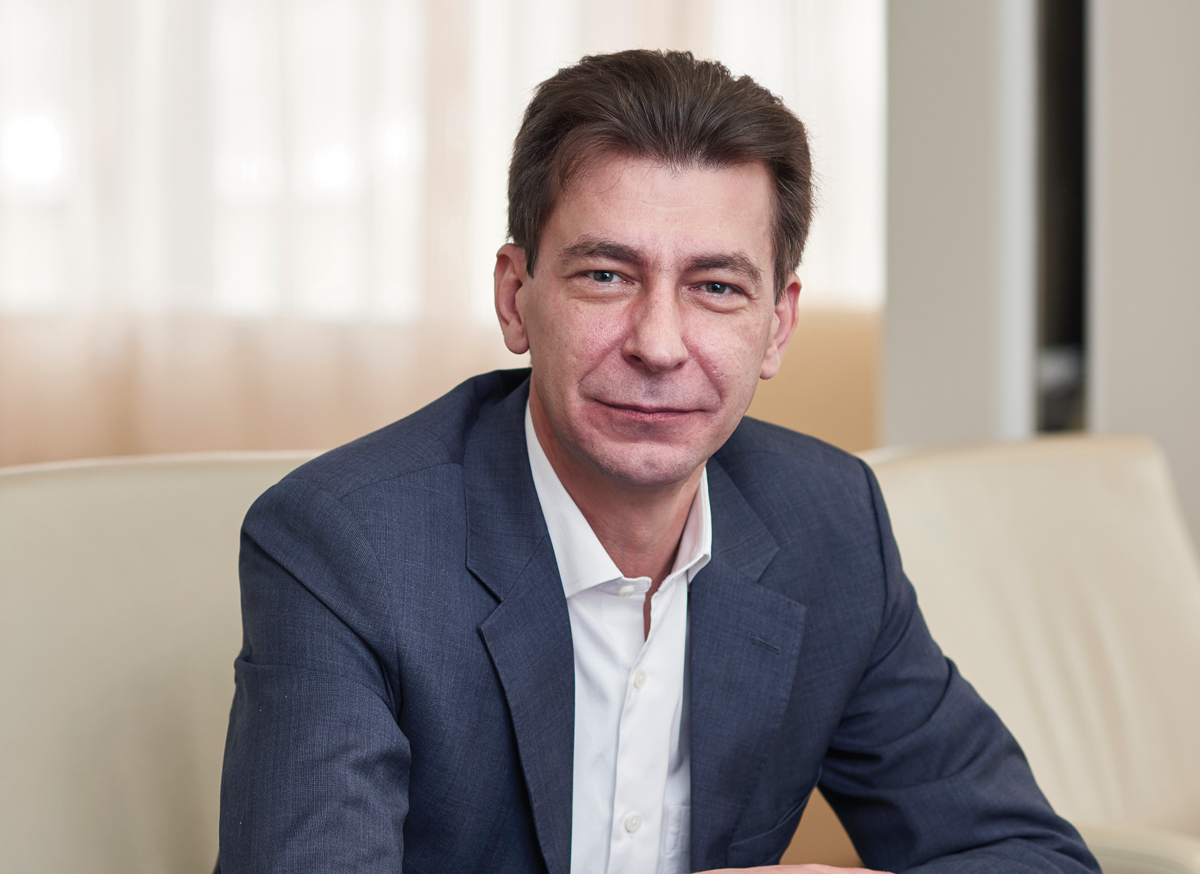Saving millions of lives and protecting the health of a nation is not something Kirill Gaidash would consider including in his job description. After all, he’s essentially an economist, trained in implementing financial policies and managing budgets. That’s how he saw himself as the former Director for Economy and Finance of Russia’s Rostec State Corporation, and is very much how the government regarded him when it awarded him the prestigious title of Honoured Economist.
But now, as the CEO of Microgen, Russia’s largest producer of immunobiological products, Kirill can’t deny he’s instrumental in handling a much more humanitarian project. While still keeping an eye on Microgen’s profits and production efficiencies, as CEO Kirill is foremost committed to ensuring the Russian people have ample supplies of vaccines and medicines to fight infectious diseases.The government-owned company is 1 of the 3 largest pharmaceutical companies in Russia. It was created in 2003 by the Ministry of Health to provide preventative, diagnostic and therapeutic immunobiological vaccines.
It was also developed to ensure the implementation of national programs of biological and epidemiological security in accordance with international standards of drug production.By 2006, the company began shipping its combined vaccines against whooping cough, diphtheria, tetanus and hepatitis B, a tremendous advance and impressive improvement for Russia’s international image in the world of medicine.

In 2015, the Russian Federal Government nominated the National Immunobiological Company (NIC) as the sole domestic supplier of immunobiological drugs to the Russian Ministry of Health. The priority was to ensure Russia produces and researches medicinal drugs independently, eliminating the need for foreign medicinal drugs. NIC is 1 of 14 holding companies uniting around 700 enterprises in the military, industry and civilian sectors under the Rostec State Corporation. Rostec was established in 2007 to further the development, manufacturing and export of high-tech industrial products. Microgen’s shares were transferred over to the corporation in 2015 to be included with the 8 other subsidiaries and affiliates of NIC.
Developing immunization strategies
Today, Microgen is producing vaccines for the National Immunization Schedule, blood products, bacteriophages — an effective alternative to antibiotics, and the first Russian botulinum toxin of A type Relatox®. There’s no doubt being owned by the government effectively guarantees a major boost to Microgen’s scientific expertise and its manufacturing and development processes.
Microgen now produces more than 70% of Russia’s immunobiological products, 300 in total, half of which are included in Russia’s list of vital and essential medicines listed in the National Immunization Schedule of Russia. It is also the only company in the country to produce, on an industrial scale, bacteriophages, which are viruses that infect bacteria without harming human cells and were discovered a century ago and since used as an alternative to antibiotics.
Microgen also manufactures BCG, a vaccine for TB, and in November last year the company developed a multivalent vaccine for measles, rubella and parotitis. Although used widely around the world, the tri-vaccine, Vactrivir, is a first for Russia. Clinical trials will be completed later this year and the vaccine is expected to get state registration by the end of 2018.
Microgen facilities have extensive research laboratories that work at developing new immunobiological preparation and technologies with a vast team of professors, scientists
and graduates leading research and development. The work is paying off, with vaccinations slowly gaining popularity among the Russian people, in particular influenza vaccines.
At the moment Microgen has completed clinical studies of Pentavalent vaccines: DTP–Hep b+Hib and a DTP–Hep b+Hib.Currently, there are mandatory vaccines for children and adults from 12 infectious diseases: viral hepatitis B, tuberculosis, diphtheria, pertussis, tetanus, measles, poliomyelitis, pneumococcal infection, haemophilus influenza, rubella, epidemic parotitis and influenza.
However, while the Ministry of Healthcare considers expanding the list of mandatory vaccines, it is the only buyer of the medicine and therefore able to purchase at low prices, putting the profits of manufacturers at risk. Prices under the federal contracts have not increased for 6 years, despite rising production costs, while customers also enjoy some of the lowest prices for vaccines in the world, according to Microgen, with comparable drugs costing up to 3 times more in other countries.
The potential outcome is clear. Without healthy profits to keep research and development buoyant and ensure production is locally confined, the development of the immune-biological industry in Russia could suffer. It was a foreseeable issue that Microgen dealt with proactively by implementing cost-cutting strategies to maintain its crucial research and development programs.

“Our vision also includes acquiring the appropriate channels to export our merchandise into European and Asian markets. The world is before us.”
Modernising manufacturing and production
During 2015, the company shed 50% of its staff in its central office in Moscow and 20% of its personnel in regional areas. Kirill was appointed to the company towards the end of the year to streamline the business even further. Describing 2016 as a “watershed” year, Kirill is optimistic about achieving more valuable financial targets and gradually increasing production and efficiency.
However, there is much more to do, and while conceding that a government contract has its advantages in a guaranteed market, Kirill understands there are still fundamental challenges to be overcome. A major priority is modernisation to ensure manufacturing processes and development meet European and international levels.
“Yes, we are a large supplier to the National Immunization Schedule, and this is of obvious advantage to us, but we also have very important developments in process which we want to be able to introduce to the market within the next 2 to 3 years. This will be of huge benefit to everyone and of course strengthen us within the commercial market,” he says.
“But to facilitate more production capacity, existing factories must be rebuilt and modernised. Restructuring our factories is, in fact, totally justified, not only because there is a demand for it by the government, but because we have to keep pace with the requirements from the commercial market and exports to CIS countries as well.
“From the perspective of evolving the company, we want to unify the production area, specialise into specific groups of products and increase those classifications. We want to increase the number of manufactured products and release new products from next year. This will, of course, create significant demand in the market.
Our vision also includes acquiring the appropriate channels to export our merchandise into European and Asian markets. The world is before us,” he laughs. “And, of course, increasing and improving our production is only part of our vision. Naturally, we also have to focus on the innovation and quality of the product.”
One clear advantage Microgen enjoys over its competitors is the company’s ability to manufacture and transport its products in a cold chain. This process ensures the delivery and storage of drugs occurs entirely in a cool temperature-controlled environment. Often referred to as ‘cool’ cargo, a cooler temperature ensures the shelf life of products from manufacture to sale.
Building strong relationships
Microgen has also developed strong relationships with suppliers, dealing directly with them rather than relying on distributors. “We have a very strong relationship with the equipment manufacturers, including materials such as ampoules, vials and syringes,” Kirill says.

“This equipment is imported, as we can’t access the same quality equipment here in Russia, and this has forged a very strong relationship with our European and American manufacturers such as Marchesini Group, Heuft, Bosch, et cetera.
We have established good contacts with these suppliers as we visit their headquarters and become acquainted with their production processes. This not only ensures it conforms to international standards, but also meets our own requirements.”
Kirill says Microgen enjoys solid, long-term relationships with up to 7 key suppliers that all offer different products and reliability after service. “With these suppliers,
it’s not just a question of going off and purchasing a machine, the relationship is ongoing, requiring maintenance and possible upgrades.
They are vital relationships as we need a full range of services throughout the cycle of production. And, of course, it works in reverse,” he adds. “Our suppliers also want reliable partners who punctually and fully perform their financial obligations as their brand is promoted through us on the domestic market.”
Being the CEO of Microgen is clearly an all-encompassing job, and while Kirill still has to deal with the day-to-day responsibilities of running a business, expanding it and protecting its profits, there’s no doubt his passion is to help the people of Russia in the battle against infectious disease.
“The main focus of our company is to manufacture products for the health of the nation,” he says. “We produce high-quality products which meet world standards, and which are all produced in the Russian Federation.
“Having said that, we are always open and ready for dialogue, and to the transfer of technology. Just as we share our technology within Russia, we are ready to share our technology with the world.”

